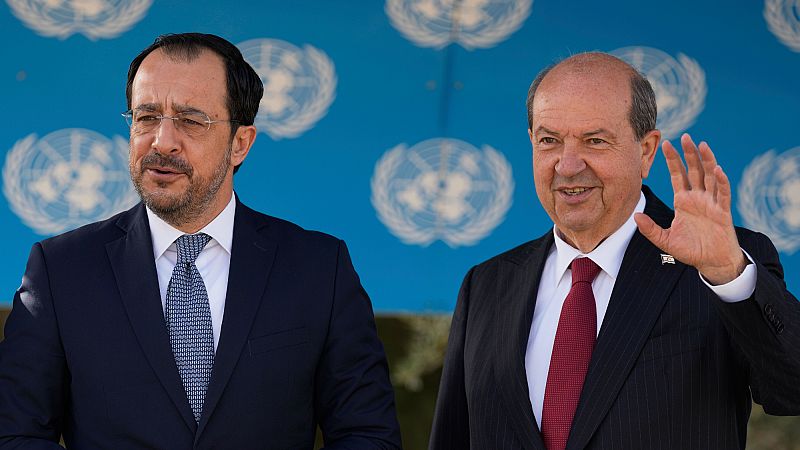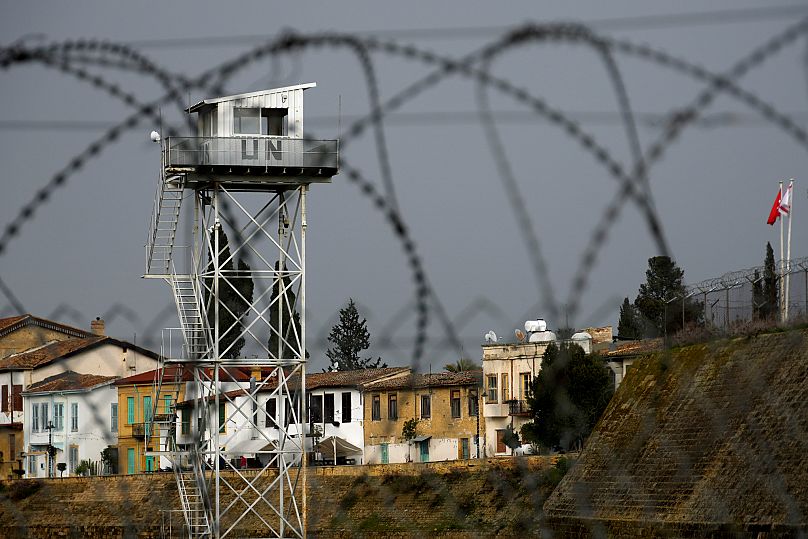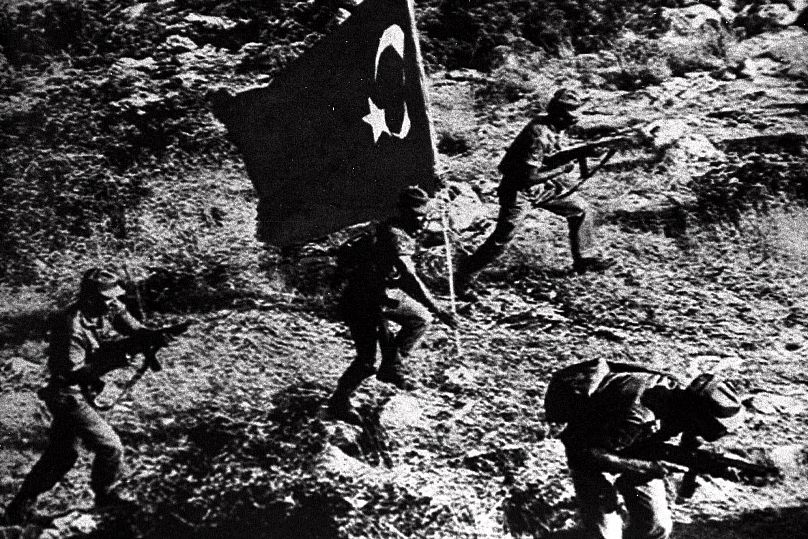
The rival leaders of ethnically divided Cyprus have made some progress towards building trust between the Greek and Turkish-speaking communities, but they still have a long way to go to formally restart stalled peace talks.
In a joint statement following the UN-hosted meeting, Ersin Tatar, the leader of Turkish-occupied northern Cyprus, and Nikos Christodoulides, the island's Greek Cypriot President, said they also agreed on restoring neglected cemeteries and setting up a joint group of young people from both sides of the divide to discuss issues relevant to them.
The measures echoed those the two leaders agreed to pursue in a meeting with UN Secretary General António Guterres in Geneva last month that aimed to kick start a peace process that has been on hiatus for nearly eight years.
Guterres said he will appoint an envoy tasked with getting formal peace talks restarted.

The Mediterranean island of Cyprus has been divided since 1974, when Turkish forces invaded following a failed coup by supporters of a union with Greece.
Only Turkey recognises the Turkish Cypriot declaration of independence, and has more than 35,000 troops stationed in the island's northern third.
Although Cyprus joined the European Union in 2004, only the Greek Cypriot south, where the internationally recognised government sits, enjoys full membership benefits.
There was no agreement on Wednesday on two key trust-building initiatives: building solar energy parks inside sections of a 180km long UN-patrolled buffer zone that cuts across the island, or adding to the nine existing crossing points along that dividing line.
Tatar said that he’s hopeful "in time we will be able to achieve" progress.
"My friend Nikos, he's got his own principles, I want our principles. What is important is to exchange and be positive so that we can achieve things together," Tatar said.

Christodoulides suggested Tatar was using the issue of solar energy parks to promote his vision of a partitioned Cyprus. The leaders agreed to meet again later this month.
The remarks point to the wide gulf between how both sides envision a future peace settlement.
Tatar and Turkey insist a two-state deal is now the only way to resolve one of the world’s most intractable disputes since the "old" model — a federation made up of Greek and Turkish speaking zones — is no longer viable after decades of failure.
Greek Cypriots say any deal that entrenches the island’s partition is a non-starter as it contravenes long-held UN resolutions endorsing a federation.
They also reject a Turkish and Turkish Cypriot demand for a permanent Turkish troop presence and military intervention rights under any accord, as well as giving the minority Turkish Cypriots veto power over all federal-level government decisions.







